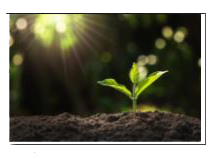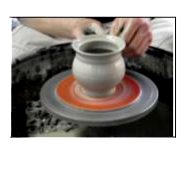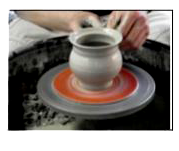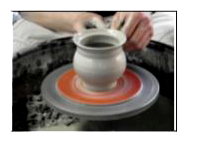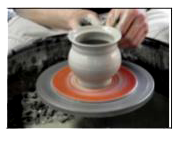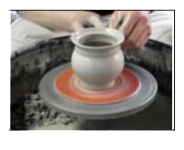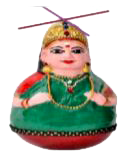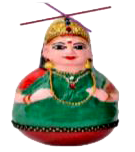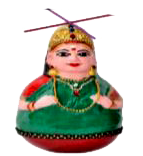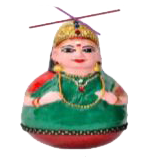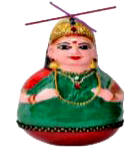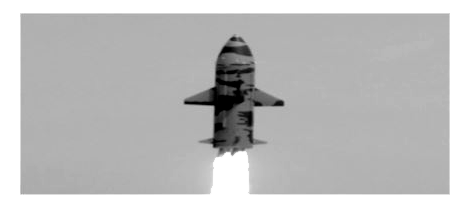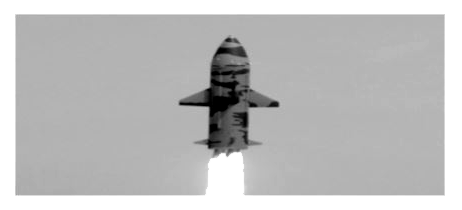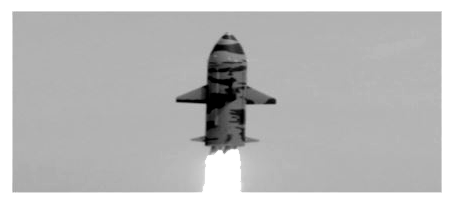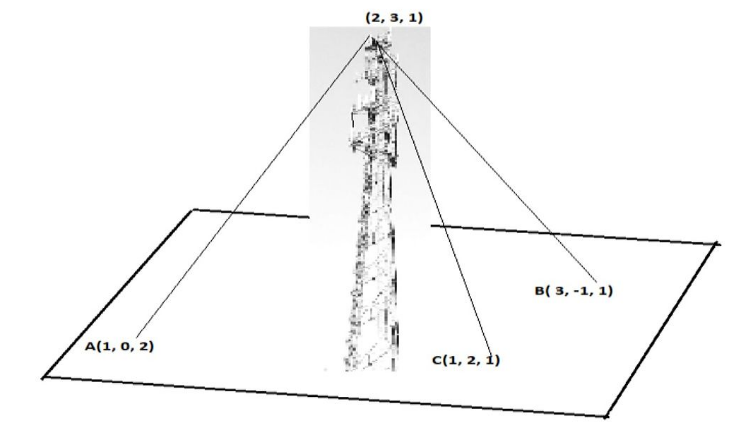MULTIPLE CHOICE QUESTIONS from CBSE MODEL PAPER Chapter 1 QUESTION BANK 2021 for Class 12
| Class 12 | MATHS |
| Chapter | QUESTION BANK 2021 |
| CBSE MODEL PAPER | MULTIPLE CHOICE QUESTIONS |
| Medium | English |
| Academic Year | 2023-2024 |
Question 1
A general election of Lok Sabha is a gigantic exercise. About 911 million people were eligible to vote and voter turnout was about 67%, the highest ever.
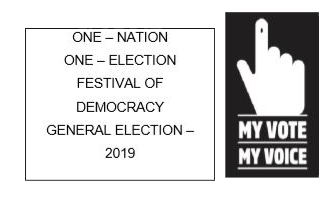
Let I be the set of all citizens of India who were eligible to exercise their voting right in general election held in 2019. A relation ‘R’ is defined on I as follows:
R={(V1,V2):V1,V2∈I and both use their voting righ in general election -2019}
Two neighbors X and Y∈I X and Y. X exercised his voting right while Y did not cast her vote in general election – 2019. Which of the following is true?View SolutionQuestion 2
A general election of Lok Sabha is a gigantic exercise. About 911 million people were eligible to vote and voter turnout was about 67%, the highest ever.
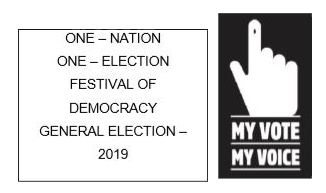
Let I be the set of all citizens of India who were eligible to exercise their voting right in general election held in 2019. A relation ‘R’ is defined on I as follows:
R={(V1,V2):V1,V2∈I and both use their voting righ in general election -2019}
Mr.’ X?’ and his wife ‘?’both exercised their voting right in general election -2019, Which of the following is true?View SolutionQuestion 3
A general election of Lok Sabha is a gigantic exercise. About 911 million people were eligible to vote and voter turnout was about 67%, the highest ever.
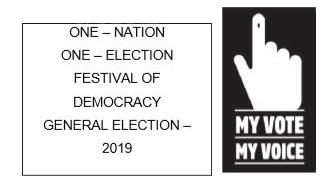
Let I be the set of all citizens of India who were eligible to exercise their voting right in general election held in 2019. A relation ‘R’ is defined on I as follows:
R={(V1,V2):V1,V2∈I and both use their voting righ in general election -2019}
Three friends F1,F2 and F3 exercised their voting right in general election-2019, then which of the following is true?View SolutionQuestion 4
A general election of Lok Sabha is a gigantic exercise. About 911 million people were eligible to vote and voter turnout was about 67%, the highest ever.
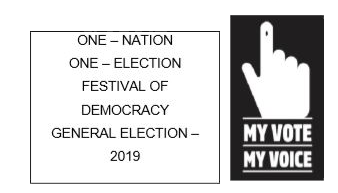
Let I be the set of all citizens of India who were eligible to exercise their voting right in general election held in 2019. A relation ‘R’ is defined on I as follows:
R={(V1,V2):V1,V2∈I and both use their voting righ in general election -2019}
The above defined relation R is __________View SolutionQuestion 5
A general election of Lok Sabha is a gigantic exercise. About 911 million people were eligible to vote and voter turnout was about 67%, the highest ever.
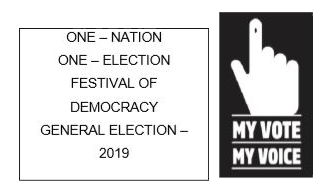
Let I be the set of all citizens of India who were eligible to exercise their voting right in general election held in 2019. A relation ‘R’ is defined on I as follows:
R={(V1,V2):V1,V2∈I and both use their voting righ in general election -2019}
Mr. Shyam exercised his voting right in General Election – 2019, then Mr. Shyam is related to which of the following?View SolutionQuestion 6
Sherlin and Danju are playing Ludo at home during Covid-19. While rolling the dice, Sherlin’s sister Raji observed and noted the possible outcomes of the throw every time belongs to set {1,2,3,4,5,6}. Let A be the set of players while B be the set of all possible outcomes.

A = {S, D}, B = {1,2,3,4,5,6}
Let R:B→B be defined by R={(x,y):y in divisible by x} is View SolutionQuestion 7
Sherlin and Danju are playing Ludo at home during Covid-19. While rolling the dice, Sherlin’s sister Raji observed and noted the possible outcomes of the throw every time belongs to set {1,2,3,4,5,6}. Let A be the set of players while B be the set of all possible outcomes.

A = {S, D}, B = {1,2,3,4,5,6}
Raji wants to know the number of functions from A to B. How many number of functions are possible?View SolutionQuestion 8
Sherlin and Danju are playing Ludo at home during Covid-19. While rolling the dice, Sherlin’s sister Raji observed and noted the possible outcomes of the throw every time belongs to set {1,2,3,4,5,6}. Let A be the set of players while B be the set of all possible outcomes.

A = {S, D}, B = {1,2,3,4,5,6}
Let R be a relation on B defined by R = {(1,2), (2,2), (1,3), (3,4), (3,1), (4,3), (5,5)}. Then R isView SolutionQuestion 9
Sherlin and Danju are playing Ludo at home during Covid-19. While rolling the dice, Sherlin’s sister Raji observed and noted the possible outcomes of the throw every time belongs to set {1,2,3,4,5,6}. Let A be the set of players while B be the set of all possible outcomes.

A = {S, D}, B = {1,2,3,4,5,6}
Raji wants to know the number of relations possible from A to B. How many numbers of relations are possible?View SolutionQuestion 10
Sherlin and Danju are playing Ludo at home during Covid-19. While rolling the dice, Sherlin’s sister Raji observed and noted the possible outcomes of the throw every time belongs to set {1,2,3,4,5,6}. Let A be the set of players while B be the set of all possible outcomes.

A = {S, D}, B = {1,2,3,4,5,6}
Let R:B→B be defined by R={(1,1),(1,2), (2,2), (3,3), (4,4), (5,5),(6,6)}, then R isView SolutionQuestion 11
An organization conducted bike race under 2 different categories-boys and girls. Totally there were 250 participants. Among all of them finally three from Category 1 and two from Category 2 were selected for the final race. Ravi forms two sets B and G with these participants for his college project.
Let B={b1,b2,b3}G={g1,g2} where B represents the set of boys selected and G the set of girls who were selected for the final race.
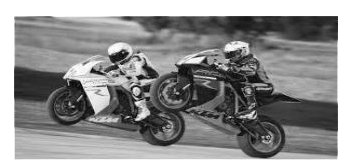
Ravi decides to explore these sets for various types of relations and functions
Ravi wishes to form all the relations possible from B to G. How many such relations are possible?View SolutionQuestion 12
An organization conducted bike race under 2 different categories-boys and girls. Totally there were 250 participants. Among all of them finally three from Category 1 and two from Category 2 were selected for the final race. Ravi forms two sets B and G with these participants for his college project.
Let B={b1,b2,b3}G={g1,g2} where B represents the set of boys selected and G the set of girls who were selected for the final race.
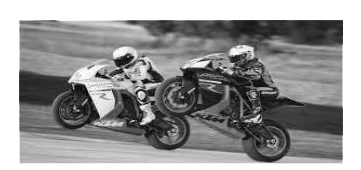
Ravi decides to explore these sets for various types of relations and functions
Let R:B→B be defined by R={(x,y):x? and y are students of same sex}, Then this relation R is_______View SolutionQuestion 13
An organization conducted bike race under 2 different categories-boys and girls. Totally there were 250 participants. Among all of them finally three from Category 1 and two from Category 2 were selected for the final race. Ravi forms two sets B and G with these participants for his college project.
Let B={b1,b2,b3}G={g1,g2} where B represents the set of boys selected and G the set of girls who were selected for the final race.
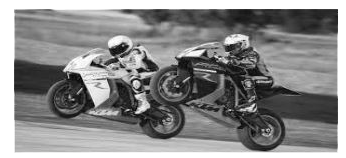
Ravi decides to explore these sets for various types of relations and functions
Ravi wants to know among those relations, how many functions can be formed from B to G?View SolutionQuestion 14
An organization conducted bike race under 2 different categories-boys and girls. Totally there were 250 participants. Among all of them finally three from Category 1 and two from Category 2 were selected for the final race. Ravi forms two sets B and G with these participants for his college project.
Let B={b1,b2,b3}G={g1,g2} where B represents the set of boys selected and G the set of girls who were selected for the final race.
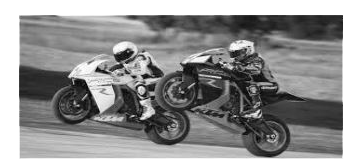
Ravi decides to explore these sets for various types of relations and functions
Let R:B→G be deined by R={(b1,g1),(b2,g2),(b3,g1)},then R is _______View SolutionQuestion 15
An organization conducted bike race under 2 different categories-boys and girls. Totally there were 250 participants. Among all of them finally three from Category 1 and two from Category 2 were selected for the final race. Ravi forms two sets B and G with these participants for his college project.
Let B={b1,b2,b3}G={g1,g2} where B represents the set of boys selected and G the set of girls who were selected for the final race.
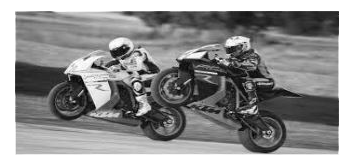
Ravi decides to explore these sets for various types of relations and functions
Ravi wants to find the number of injective functions from B to G. How many numbers of injective functions are possible?View SolutionQuestion 16
Students of Grade 9, planned to plant saplings along straight lines, parallel to each other to one side of the playground ensuring that they had enough play area. Let us assume that they planted one of the rows of the saplings along the line y=x−4 . Let L be the set of all lines which are parallel on the ground and R be a relation on L.
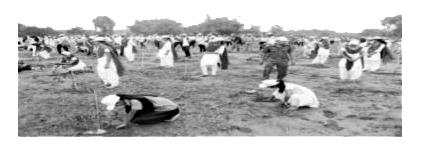
Answer the following using the above information.
Let relation R be defined by R={L1,L2):L1∣∣L2 where L1,L2∈L} then R is ______ relation View SolutionQuestion 17
Students of Grade 9, planned to plant saplings along straight lines, parallel to each other to one side of the playground ensuring that they had enough play area. Let us assume that they planted one of the rows of the saplings along the liney=x−4. Let L be the set of all lines which are parallel on the ground and R be a relation on L.
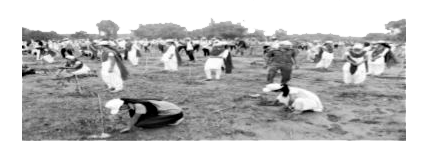
Answer the following using the above information.
Let R={L1,L2):L1⊥L2 where L1,L2∈L} which of the followng is true?View SolutionQuestion 18
Students of Grade 9, planned to plant saplings along straight lines, parallel to each other to one side of the playground ensuring that they had enough play area. Let us assume that they planted one of the rows of the saplings along the line y=x−4 . Let L be the set of all lines which are parallel on the ground and R be a relation on L.
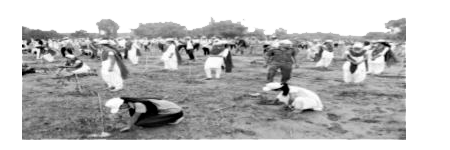
Answer the following using the above information.
The function f:R→R defined by f(x)=x−4 is _______View SolutionQuestion 19
Students of Grade 9, planned to plant saplings along straight lines, parallel to each other to one side of the playground ensuring that they had enough play area. Let us assume that they planted one of the rows of the saplings along the line y=x−4 . Let L be the set of all lines which are parallel on the ground and R be a relation on L.
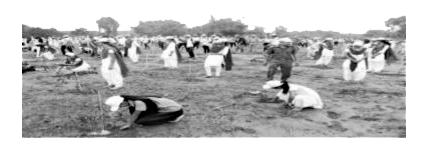
Answer the following using the above information.
Let f:R→R be defined by f(x)=x−4. Then the range of o f(x) is _View SolutionQuestion 20
Students of Grade 9, planned to plant saplings along straight lines, parallel to each other to one side of the playground ensuring that they had enough play area. Let us assume that they planted one of the rows of the saplings along the line y=x−4 . Let L be the set of all lines which are parallel on the ground and R be a relation on L.
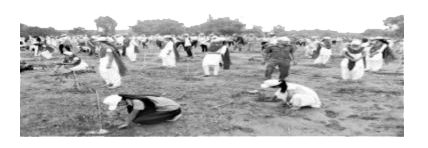
Answer the following using the above information.
Let R={(L1,L2):L1 is parallel to L2 and L1:y=x−4} then which of the following can be taken as L2?View SolutionQuestion 21
Raji visited the Exhibition along with her family. The Exhibition had a huge swing, which attracted many children. Raji found that the swing traced the path of a Parabola as given by y=x2
Answer the following questions using the above information.
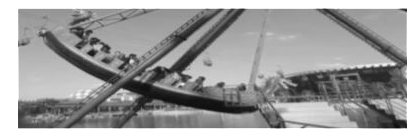
Let f:R→R be defined by f(x)=x2 is ___View SolutionQuestion 22
Raji visited the Exhibition along with her family. The Exhibition had a huge swing, which attracted many children. Raji found that the swing traced the path of a Parabola as given by y=x2
Answer the following questions using the above information.
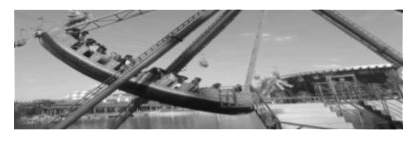
Let f:N→N be defined by f(x)=x2 is _____View SolutionQuestion 23
Raji visited the Exhibition along with her family. The Exhibition had a huge swing, which attracted many children. Raji found that the swing traced the path of a Parabola as given by y=x2
Answer the following questions using the above information.

Let f:{1,2,3,.........}→{1,4,9,.......} be defined by f(x)=x2 is _________View SolutionQuestion 24
Raji visited the Exhibition along with her family. The Exhibition had a huge swing, which attracted many children. Raji found that the swing traced the path of a Parabola as given by y=x2
Answer the following questions using the above information.
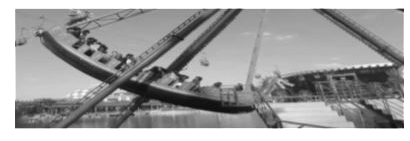
Let : N→R be defined by f(x)=x2. Range of the function among the following is _________View SolutionQuestion 25
Raji visited the Exhibition along with her family. The Exhibition had a huge swing, which attracted many children. Raji found that the swing traced the path of a Parabola as given by y=x2
Answer the following questions using the above information.

The function f:Z→Z defined by f(x)=x2 is ____View SolutionQuestion 26
Two men on either side of a temple of 30 meters high observe its top at the angles of elevation? α and beta respectively. (as shown in the figure above). The distance between the two men is 40√3 meters and the distance between the first person A and the temple is30√3 meters. Based on the above information answer the following:
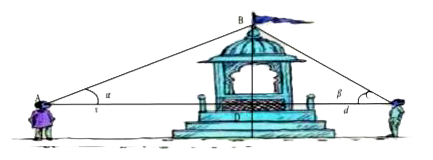
∠CAB=α=View SolutionQuestion 27
Two men on either side of a temple of 30 meters high observe its top at the angles of elevation α and β respectively. (as shown in the figure above). The distance between the two men is 40√3 meters and the distance between the first person A and the temple is30√3 meters. Based on the above information answer the following:
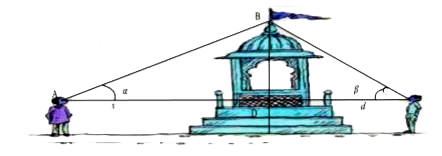
∠CAB=α=View SolutionQuestion 28
Two men on either side of a temple of 30 meters high observe its top at the angles of elevation α and β? respectively. (as shown in the figure above). The distance between the two men is 40√3 meters and the distance between the first person A and the temple is30√3 meters. Based on the above information answer the following:
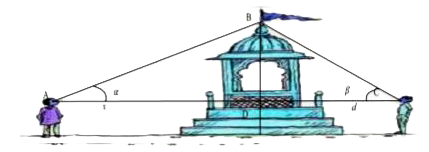
∠BCA=β=View SolutionQuestion 29
Two men on either side of a temple of 30 meters high observe its top at the angles of elevation α and β? respectively. (as shown in the figure above). The distance between the two men is 40√3 meters and the distance between the first person A and the temple is30√3 meters. Based on the above information answer the following:

∠ABC=View SolutionQuestion 30
Two men on either side of a temple of 30 meters high observe its top at the angles of elevation α and β? respectively. (as shown in the figure above). The distance between the two men is 40√3 meters and the distance between the first person A and the temple is30√3 meters. Based on the above information answer the following:
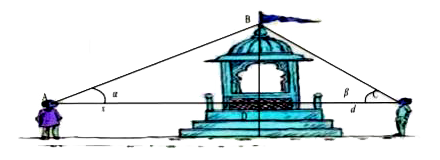
Domain and Range of cos−1x=View SolutionQuestion 31
The Government of India is planning to fix a hoarding board at the face of a building on the road of a busy market for awareness on COVID-19 protocol. Ram, Robert and Rahim are the three engineers who are working on this project. “A” is considered to be a person viewing the hoarding board 20 metres away from the building, standing at the edge of a pathway nearby. Ram, Robert and Rahim suggested to the firm to place the hoarding board at three different locations namely C, D and E. “C” is at the height of 10 metres from the ground level. For the viewer A, the angle of elevation of “D” is double the angle of elevation of “C” The angle of elevation of “E” is triple the angle of elevation of “C” for the same viewer. Look at the figure given and based on the above information answer the following:
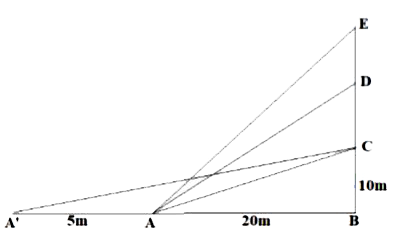
Measure of ∠CAB=View SolutionQuestion 32
The Government of India is planning to fix a hoarding board at the face of a building on the road of a busy market for awareness on COVID-19 protocol. Ram, Robert and Rahim are the three engineers who are working on this project. “A” is considered to be a person viewing the hoarding board 20 metres away from the building, standing at the edge of a pathway nearby. Ram, Robert and Rahim suggested to the firm to place the hoarding board at three different locations namely C, D and E. “C” is at the height of 10 metres from the ground level. For the viewer A, the angle of elevation of “D” is double the angle of elevation of “C” The angle of elevation of “E” is triple the angle of elevation of “C” for the same viewer. Look at the figure given and based on the above information answer the following:
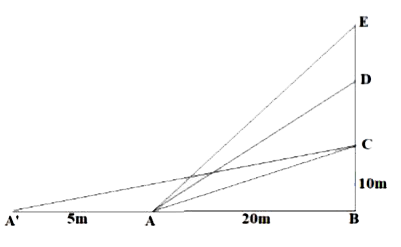
Measure of ∠DAB=View SolutionQuestion 33
The Government of India is planning to fix a hoarding board at the face of a building on the road of a busy market for awareness on COVID-19 protocol. Ram, Robert and Rahim are the three engineers who are working on this project. “A” is considered to be a person viewing the hoarding board 20 metres away from the building, standing at the edge of a pathway nearby. Ram, Robert and Rahim suggested to the firm to place the hoarding board at three different locations namely C, D and E. “C” is at the height of 10 metres from the ground level. For the viewer A, the angle of elevation of “D” is double the angle of elevation of “C” The angle of elevation of “E” is triple the angle of elevation of “C” for the same viewer. Look at the figure given and based on the above information answer the following:
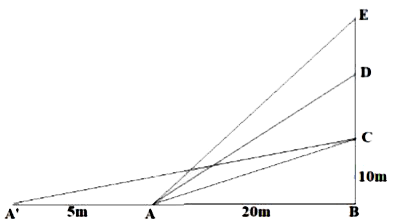
Measure of ∠EAB=View SolutionQuestion 34
The Government of India is planning to fix a hoarding board at the face of a building on the road of a busy market for awareness on COVID-19 protocol. Ram, Robert and Rahim are the three engineers who are working on this project. “A” is considered to be a person viewing the hoarding board 20 metres away from the building, standing at the edge of a pathway nearby. Ram, Robert and Rahim suggested to the firm to place the hoarding board at three different locations namely C, D and E. “C” is at the height of 10 metres from the ground level. For the viewer A, the angle of elevation of “D” is double the angle of elevation of “C” The angle of elevation of “E” is triple the angle of elevation of “C” for the same viewer. Look at the figure given and based on the above information answer the following:
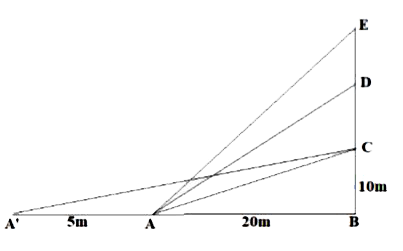
A1 Is another viewer standing on the same line of observation across the road. If the width of the road is 5 meters, then the difference between ∠CAB and ∠CA'B Is View SolutionQuestion 35
The Government of India is planning to fix a hoarding board at the face of a building on the road of a busy market for awareness on COVID-19 protocol. Ram, Robert and Rahim are the three engineers who are working on this project. “A” is considered to be a person viewing the hoarding board 20 metres away from the building, standing at the edge of a pathway nearby. Ram, Robert and Rahim suggested to the firm to place the hoarding board at three different locations namely C, D and E. “C” is at the height of 10 metres from the ground level. For the viewer A, the angle of elevation of “D” is double the angle of elevation of “C” The angle of elevation of “E” is triple the angle of elevation of “C” for the same viewer. Look at the figure given and based on the above information answer the following:
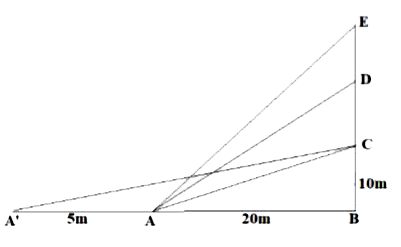
Domain and Range of tan−1x=View SolutionQuestion 36
A manufacture produces three stationery products Pencil, Eraser and Sharpener which he sells in two markets. Annual sales are indicated below


If the unit Sale price of Pencil, Eraser and Sharpener are Rs. 2.50, Rs. 1.50 and Rs. 1.00 respectively, and unit cost of the above three commodities are Rs. 2.00, Rs. 1.00 and Rs. 0.50 respectively, then,
Based on the above information answer the following:
Total revenue of market AView SolutionQuestion 37
A manufacture produces three stationery products Pencil, Eraser and Sharpener which he sells in two markets. Annual sales are indicated below


If the unit Sale price of Pencil, Eraser and Sharpener are Rs. 2.50, Rs. 1.50 and Rs. 1.00 respectively, and unit cost of the above three commodities are Rs. 2.00, Rs. 1.00 and Rs. 0.50 respectively, then,
Based on the above information answer the following:
Total revenue of market BView SolutionQuestion 38
A manufacture produces three stationery products Pencil, Eraser and Sharpener which he sells in two markets. Annual sales are indicated below


If the unit Sale price of Pencil, Eraser and Sharpener are Rs. 2.50, Rs. 1.50 and Rs. 1.00 respectively, and unit cost of the above three commodities are Rs. 2.00, Rs. 1.00 and Rs. 0.50 respectively, then,
Based on the above information answer the following:
Cost incurred in market AView SolutionQuestion 39
A manufacture produces three stationery products Pencil, Eraser and Sharpener which he sells in two markets. Annual sales are indicated below


If the unit Sale price of Pencil, Eraser and Sharpener are Rs. 2.50, Rs. 1.50 and Rs. 1.00 respectively, and unit cost of the above three commodities are Rs. 2.00, Rs. 1.00 and Rs. 0.50 respectively, then,
Based on the above information answer the following:
Profit in market A and B respectively areView SolutionQuestion 40
A manufacture produces three stationery products Pencil, Eraser and Sharpener which he sells in two markets. Annual sales are indicated below


If the unit Sale price of Pencil, Eraser and Sharpener are Rs. 2.50, Rs. 1.50 and Rs. 1.00 respectively, and unit cost of the above three commodities are Rs. 2.00, Rs. 1.00 and Rs. 0.50 respectively, then,
Based on the above information answer the following:
Gross profit in both marketView SolutionQuestion 41
Amit, Biraj and Chirag were given the task of creating a square matrux of order 2.
Below are the matrices created by them. A, B , C are the matrices created by Amit, Biraj and Chirag respectively.
A=[12−13]B=[4015]C=[201−2]
If a=4 and b=-2 based on the above information answer the following:
Sum of the matrices A, B and C , A+(B+C) is View SolutionQuestion 42
Amit, Biraj and Chirag were given the task of creating a square matrux of order 2.
Below are the matrices created by them. A, B , C are the matrices created by Amit, Biraj and Chirag respectively.
A=[12−13]B=[4015]C=[201−2]
If a=4 and b=-2 based on the above information answer the following:
(AT)T is equal to View SolutionQuestion 43
Amit, Biraj and Chirag were given the task of creating a square matrux of order 2.
Below are the matrices created by them. A, B , C are the matrices created by Amit, Biraj and Chirag respectively.
A=[12−13]B=[4015]C=[201−2]
If a=4 and b=-2 based on the above information answer the following:
(bA)T is equal to View SolutionQuestion 44
Amit, Biraj and Chirag were given the task of creating a square matrux of order 2.
Below are the matrices created by them. A, B , C are the matrices created by Amit, Biraj and Chirag respectively.
A=[12−13]B=[4015]C=[201−2]
If a=4 and b=-2 based on the above information answer the following:
AC−BC is equal to View SolutionQuestion 45
Amit, Biraj and Chirag were given the task of creating a square matrux of order 2.
Below are the matrices created by them. A, B , C are the matrices created by Amit, Biraj and Chirag respectively.
A=[12−13]B=[4015]C=[201−2]
If a=4 and b=-2 based on the above information answer the following:
(a+b)B is equal to View SolutionQuestion 46
Three schools DPS, CVC and KVS decided to organize a fair for collecting money for helping the flood victims. They sold handmade fans, mats and plates from recycled material at a cost of Rs. 25, Rs.100 and Rs. 50 each respectively. The numbers of articles sold are given as
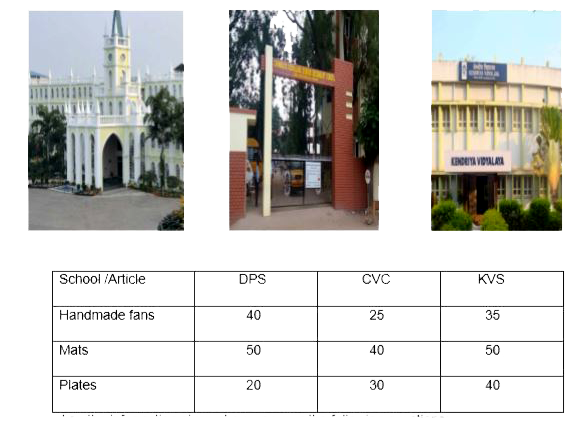
Based on the information given above, answer the following questions:
What is the total money (in Rupees) collected by the school DPS?View SolutionQuestion 47
Three schools DPS, CVC and KVS decided to organize a fair for collecting money for helping the flood victims. They sold handmade fans, mats and plates from recycled material at a cost of Rs. 25, Rs.100 and Rs. 50 each respectively. The numbers of articles sold are given as
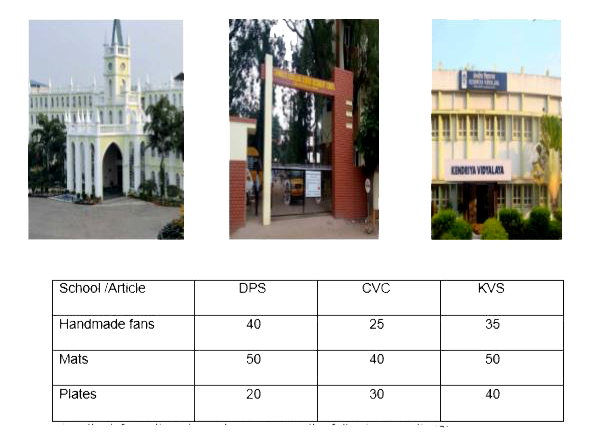
Based on the information given above, answer the following questions:What is the total amount of money (in Rs.) collected by schools CVC and KVS?View SolutionQuestion 48
Three schools DPS, CVC and KVS decided to organize a fair for collecting money for helping the flood victims. They sold handmade fans, mats and plates from recycled material at a cost of Rs. 25, Rs.100 and Rs. 50 each respectively. The numbers of articles sold are given as
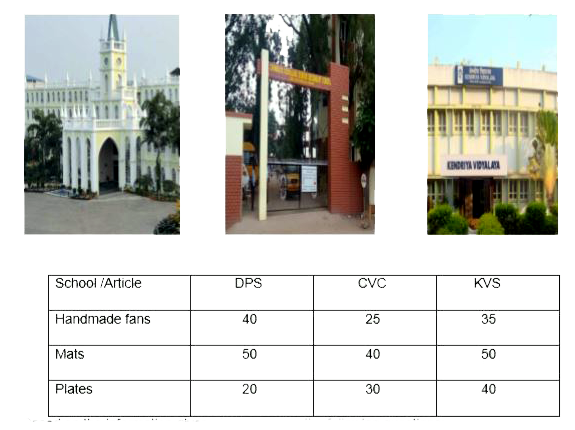
Based on the information given above, answer the following questions:
What is the total amount of money collected by all three schools DPS, CVC and KVS?View SolutionQuestion 49
Three schools DPS, CVC and KVS decided to organize a fair for collecting money for helping the flood victims. They sold handmade fans, mats and plates from recycled material at a cost of Rs. 25, Rs.100 and Rs. 50 each respectively. The numbers of articles sold are given as
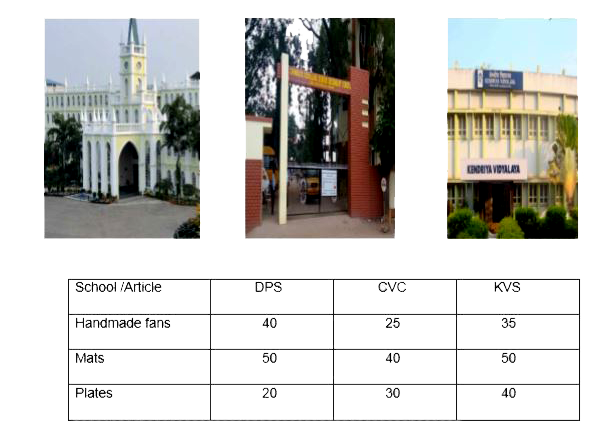
Based on the information given above, answer the following questions:
If the number of handmade fans and plates are interchanged for all the schools, then what is the total money collected by all schools?View SolutionQuestion 50
Three schools DPS, CVC and KVS decided to organize a fair for collecting money for helping the flood victims. They sold handmade fans, mats and plates from recycled material at a cost of Rs. 25, Rs.100 and Rs. 50 each respectively. The numbers of articles sold are given as
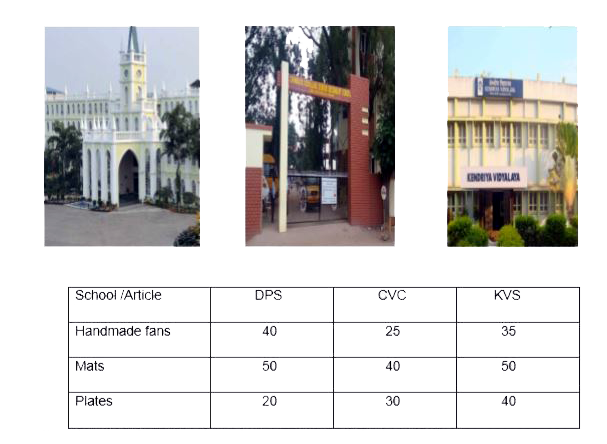
Based on the information given above, answer the following questions:
How many articles (in total) are sold by three schools?View SolutionQuestion 51
On her birth day, Seema decided to donate some money to children of an orphanage home. If there were 8 children less, everyone would have got Rs.10 more. However, if there were 16 children more, everyone would have got Rs. 10 less. Let the number of children be x and the amount distributed by Seema for one child be y (in Rs.).
Based on the information given above, answer the following questions:

The equations in terms x and y areView SolutionQuestion 52
On her birth day, Seema decided to donate some money to children of an orphanage home. If there were 8 children less, everyone would have got Rs.10 more. However, if there were 16 children more, everyone would have got Rs. 10 less. Let the number of children be x and the amount distributed by Seema for one child be y (in Rs.).
Based on the information given above, answer the following questions:

Which of the following matrix equations represent the information given above?View SolutionQuestion 53
On her birth day, Seema decided to donate some money to children of an orphanage home. If there were 8 children less, everyone would have got Rs.10 more. However, if there were 16 children more, everyone would have got Rs. 10 less. Let the number of children be x and the amount distributed by Seema for one child be y (in Rs.).
Based on the information given above, answer the following questions:

The number of children who were given some money by Seema, isView SolutionQuestion 54
On her birth day, Seema decided to donate some money to children of an orphanage home. If there were 8 children less, everyone would have got Rs.10 more. However, if there were 16 children more, everyone would have got Rs. 10 less. Let the number of children be x and the amount distributed by Seema for one child be y (in Rs.).
Based on the information given above, answer the following questions:

How much amount is given to each child by Seema?View SolutionQuestion 55
On her birth day, Seema decided to donate some money to children of an orphanage home. If there were 8 children less, everyone would have got Rs.10 more. However, if there were 16 children more, everyone would have got Rs. 10 less. Let the number of children be x and the amount distributed by Seema for one child be y (in Rs.).
Based on the information given above, answer the following questions:

How much amount Seema spends in distributing the money to all the students of the Orphanage?View SolutionQuestion 56
Two farmers Ramakishan and Gurucharan Singh cultivate only three varieties of rice namely Basmati, Permal and Naura. The sale (in rupees) of these varieties of rice by both the farmers in the month of September and October are given by the following matrices A and B
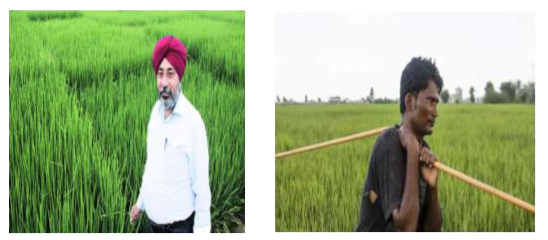
The total sales in September and October for each farmer in each variety can be represented as _______..View SolutionQuestion 57
Two farmers Ramakishan and Gurucharan Singh cultivate only three varieties of rice namely Basmati, Permal and Naura. The sale (in rupees) of these varieties of rice by both the farmers in the month of September and October are given by the following matrices A and B
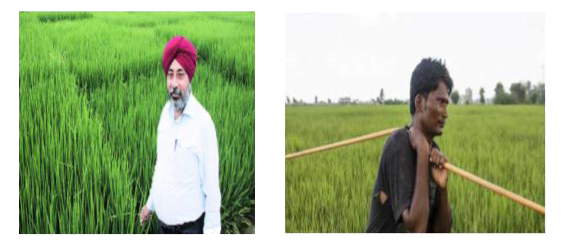
What is the value of ?A23?View SolutionQuestion 58
Two farmers Ramakishan and Gurucharan Singh cultivate only three varieties of rice namely Basmati, Permal and Naura. The sale (in rupees) of these varieties of rice by both the farmers in the month of September and October are given by the following matrices A and B
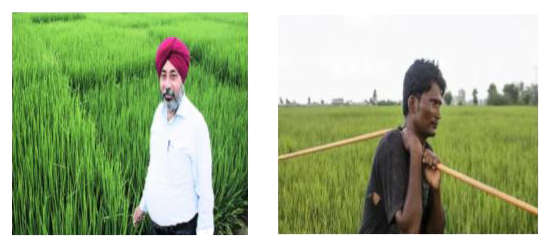
The decrease in sales from September to October is given by _______ .View SolutionQuestion 59
Two farmers Ramakishan and Gurucharan Singh cultivate only three varieties of rice namely Basmati, Permal and Naura. The sale (in rupees) of these varieties of rice by both the farmers in the month of September and October are given by the following matrices A and B
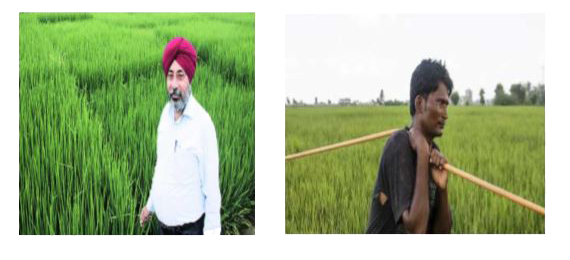
If Ramkishan receives 2% profit on gross sales, compute his profit for each variety sold in October.View SolutionQuestion 60
Two farmers Ramakishan and Gurucharan Singh cultivate only three varieties of rice namely Basmati, Permal and Naura. The sale (in rupees) of these varieties of rice by both the farmers in the month of September and October are given by the following matrices A and B
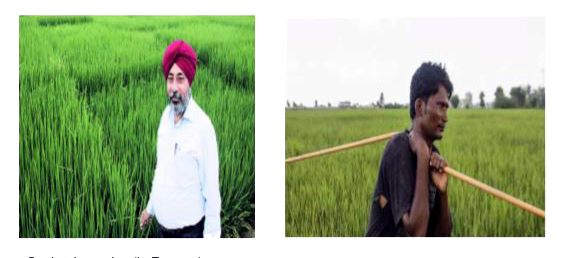
If Gurucharan receives 2% profit on gross sales, compute his profit for each variety sold in September.View SolutionQuestion 61
Manjit wants to donate a rectangular plot of land for a school in his village. When he was asked to give dimensions of the plot, he told that if its length is decreased by 50 m and breadth is increased by 50m, then its area will remain same, but if length is decreased by 10m and breadth is decreased by 20m, then its area will decrease by 5300m2
Based on the information given above, answer the following questions:
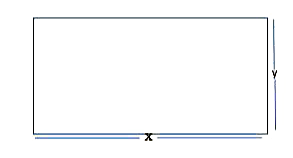
The equations in terms of X and Y areView SolutionQuestion 62
Manjit wants to donate a rectangular plot of land for a school in his village. When he was asked to give dimensions of the plot, he told that if its length is decreased by 50 m and breadth is increased by 50m, then its area will remain same, but if length is decreased by 10m and breadth is decreased by 20m, then its area will decrease by 5300m2
Based on the information given above, answer the following questions:
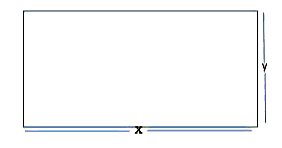
Which of the following matrix equation is represented by the given informationView SolutionQuestion 63
Manjit wants to donate a rectangular plot of land for a school in his village. When he was asked to give dimensions of the plot, he told that if its length is decreased by 50 m and breadth is increased by 50m, then its area will remain same, but if length is decreased by 10m and breadth is decreased by 20m, then its area will decrease by 5300m2
Based on the information given above, answer the following questions:
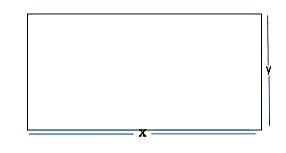
The value of x (length of rectangular field) isView SolutionQuestion 64
Manjit wants to donate a rectangular plot of land for a school in his village. When he was asked to give dimensions of the plot, he told that if its length is decreased by 50 m and breadth is increased by 50m, then its area will remain same, but if length is decreased by 10m and breadth is decreased by 20m, then its area will decrease by 5300m2
Based on the information given above, answer the following questions:
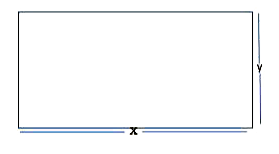
The value of y (breadth of rectangular field) isView SolutionQuestion 65
Manjit wants to donate a rectangular plot of land for a school in his village. When he was asked to give dimensions of the plot, he told that if its length is decreased by 50 m and breadth is increased by 50m, then its area will remain same, but if length is decreased by 10m and breadth is decreased by 20m, then its area will decrease by 5300m2
Based on the information given above, answer the following questions:
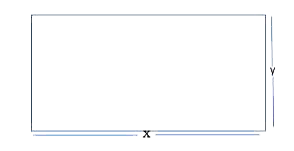
How much is the area of rectangular field?View SolutionQuestion 70
The Relation between the height of the plant (y in cm) with respect to exposure to sunlight is governed by the following equation y=4x−12x2 where x is the numberof days exposed to sunlight.
If the height of the plant is 72 cm, the number of days it has been exposed to the sunlight is ______ .
 View Solution
View SolutionQuestion 86

The bridge connects two hills 100 feet apart. The arch on the bridge is in a parabolic form. The highest point on the bridge is 10 feet above the road at the middle of the bridge as seen in the figure.
Based on the information given above, answer the following questions:
The equation of the parabola designed on the bridge can be View SolutionQuestion 87
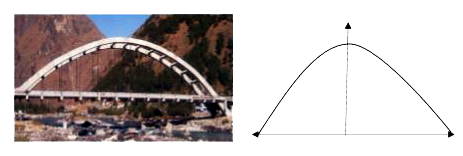
The bridge connects two hills 100 feet apart. The arch on the bridge is in a parabolic form. The highest point on the bridge is 10 feet above the road at the middle of the bridge as seen in the figure.
Based on the information given above, answer the following questions:
The value of the integral ∫50−50x2250dx isView SolutionQuestion 88

The bridge connects two hills 100 feet apart. The arch on the bridge is in a parabolic form. The highest point on the bridge is 10 feet above the road at the middle of the bridge as seen in the figure.
Based on the information given above, answer the following questions:
The integrand of the integral ∫50−50x2dx is ________ function.View SolutionQuestion 89
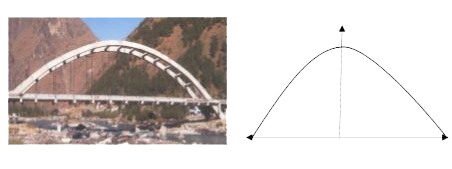
The bridge connects two hills 100 feet apart. The arch on the bridge is in a parabolic form. The highest point on the bridge is 10 feet above the road at the middle of the bridge as seen in the figure.
Based on the information given above, answer the following questions:
The area formed by the curve x2=250y, x-axis , y = 0 and y = 10 is View SolutionQuestion 90
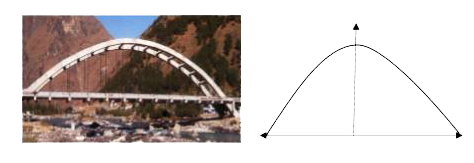
The bridge connects two hills 100 feet apart. The arch on the bridge is in a parabolic form. The highest point on the bridge is 10 feet above the road at the middle of the bridge as seen in the figure.
Based on the information given above, answer the following questions:
The area formed between x2=250y, y-axis , y = 2 and y = 4 is View SolutionQuestion 91
A Veterinary doctor was examining a sick cat brought by a pet lover. When it was brought to the hospital, it was already dead. The pet lover wanted to find its time of death. He took the temperature of the cat at 11.30 pm which was 94.6∘F. He took the temperature again after one hour, the temperature was lower than the first observation. It was 93.4∘F. The room in which the cat was put is always at 70∘F. The normal temperature of the cat is taken as 98.6∘F when it was alive. The doctor estimated the time of death using Newton law of cooling which is governed by the differential equation: dTdt∝(T−70), where 70∘F is the room temperature and T is the temperature of the object at time t.
Substituting the two different observations of T and t made, in the solution of the differential equation dTdt=k(T-70) where k is a constant of proportion, time of death is calculated.
Which method of solving a differential equation helped in calculation of the time of death? View SolutionQuestion 92
A Veterinary doctor was examining a sick cat brought by a pet lover. When it was brought to the hospital, it was already dead. The pet lover wanted to find its time of death. He took the temperature of the cat at 11.30 pm which was 94.6∘F. He took the temperature again after one hour, the temperature was lower than the first observation. It was 93.4∘F. The room in which the cat was put is always at 70∘F. The normal temperature of the cat is taken as 98.6∘F when it was alive. The doctor estimated the time of death using Newton law of cooling which is governed by the differential equation: dTdt∝(T−70), where 70∘F is the room temperature and T is the temperature of the object at time t.
Substituting the two different observations of T and t made, in the solution of the differential equation dTdt=k(T-70) where k is a constant of proportion, time of death is calculated.
The solution of the differential equation dTdt=k(T−70) is given by,View SolutionQuestion 93
A Veterinary doctor was examining a sick cat brought by a pet lover. When it was brought to the hospital, it was already dead. The pet lover wanted to find its time of death. He took the temperature of the cat at 11.30 pm which was 94.6∘F. He took the temperature again after one hour, the temperature was lower than the first observation. It was 93.4∘F. The room in which the cat was put is always at 70∘F. The normal temperature of the cat is taken as 98.6∘F when it was alive. The doctor estimated the time of death using Newton law of cooling which is governed by the differential equation: dTdt∝(T−70), where 70∘F is the room temperature and T is the temperature of the object at time t.
Substituting the two different observations of T and t made, in the solution of the differential equation dTdt=k(T-70) where k is a constant of proportion, time of death is calculated.
If t = 0 when T is 72, then the value of c is View SolutionQuestion 94
Polio drops are delivered to 50K children in a district. The rate at which polio drops are given is directly proportional to the number of children who have not been administered the drops. By the end of 2nd week half the children have been given the polio drops. How many will have been given the drops by the end of 3rd week can be estimated using the solution to the differential equation dydx=k(50−y) where x denotes the number of weeks and y the number of children who have been given the drops.
Which method of solving a differential equation can be used to solve dydx=k(50−y)?View SolutionQuestion 95
Polio drops are delivered to 50K children in a district. The rate at which polio drops are given is directly proportional to the number of children who have not been administered the drops. By the end of 2nd week half the children have been given the polio drops. How many will have been given the drops by the end of 3rd week can be estimated using the solution to the differential equation dydx=k(50−y) where x denotes the number of weeks and y the number of children who have been given the drops.
The solution of the differential equation dydx=k(50−y) is given by,View SolutionQuestion 96
Polio drops are delivered to 50K children in a district. The rate at which polio drops are given is directly proportional to the number of children who have not been administered the drops. By the end of 2nd week half the children have been given the polio drops. How many will have been given the drops by the end of 3rd week can be estimated using the solution to the differential equation dydx=k(50−y) where x denotes the number of weeks and y the number of children who have been given the drops.
The value of c in the particular solution given that y(0)=0 and k = 0.049 isView SolutionQuestion 97
Polio drops are delivered to 50K children in a district. The rate at which polio drops are given is directly proportional to the number of children who have not been administered the drops. By the end of 2nd week half the children have been given the polio drops. How many will have been given the drops by the end of 3rd week can be estimated using the solution to the differential equation dydx=k(50−y) where x denotes the number of weeks and y the number of children who have been given the drops.
hich of the following solutions may be used to find the number of children who have been given the polio drops? View SolutionQuestion 103
A cricket match is organized between two Clubs A and B for which a team from each club is chosen. Remaining players of Club A and Club B are respectively sitting on the plane represented by the equation →r.(2→i−→j+→k)=3 and →r.(→i+3→j+2→k)=8 to cheer the team of their own clubs.

Based on the above answer the following:
The Cartesian equation of the plane on which players of Club A are seated is View SolutionQuestion 104
A cricket match is organized between two Clubs A and B for which a team from each club is chosen. Remaining players of Club A and Club B are respectively sitting on the plane represented by the equation →r.(2→i−→j+→k)=3 and →r.(→i+3→j+2→k)=8 to cheer the team of their own clubs.

Based on the above answer the following:
The magnitude of the normal to the plane on which players of club B are seated, is View SolutionQuestion 105
A cricket match is organized between two Clubs A and B for which a team from each club is chosen. Remaining players of Club A and Club B are respectively sitting on the plane represented by the equation →r.(2→i−→j+→k)=3 and →r.(→i+3→j+2→k)=8 to cheer the team of their own clubs.

Based on the above answer the following:
The intercept form of the equation of the plane on which players of Club B are seated is View SolutionQuestion 106
A cricket match is organized between two Clubs A and B for which a team from each club is chosen. Remaining players of Club A and Club B are respectively sitting on the plane represented by the equation →r.(2→i−→j+→k)=3 and →r.(→i+3→j+2→k)=8 to cheer the team of their own clubs.

Based on the above answer the following:
Which of the following is a player of Club B? View SolutionQuestion 107
A cricket match is organized between two Clubs A and B for which a team from each club is chosen. Remaining players of Club A and Club B are respectively sitting on the plane represented by the equation →r.(2→i−→j+→k)=3 and →r.(→i+3→j+2→k)=8 to cheer the team of their own clubs.

Based on the above answer the following:
The distance of the plane, on which players of Club B are seated, from the origin is View SolutionQuestion 108
The Indian coast guard, while patrolling, saw a suspicious boat with people. They were nowhere looking like fishermen. The coast guard were closely observing the movement of the boat for an opportunity to seize the boat. They observed that the boat is moving along a planar surface. At an instant of time, the coordinates of the position of the coast guard helicopter and the boat is (1, 3, 5) and (2, 5, 3) respectively.
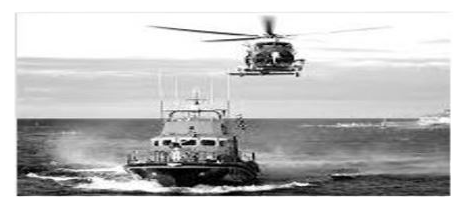
Based on the above answer the following:
If the line joining the positions of the helicopter and the boat is perpendicular to the plane in which the boat moves, then the equation of the plane is View SolutionQuestion 109
The Indian coast guard, while patrolling, saw a suspicious boat with people. They were nowhere looking like fishermen. The coast guard were closely observing the movement of the boat for an opportunity to seize the boat. They observed that the boat is moving along a planar surface. At an instant of time, the coordinates of the position of the coast guard helicopter and the boat is (1, 3, 5) and (2, 5, 3) respectively.
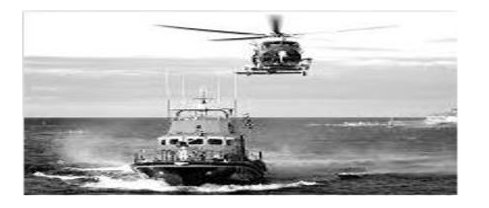
Based on the above answer the following:
If the coast guard decide to shoot the boat at that given instant of time, then what is the distance (in meters) that the bullet has to travel? View SolutionQuestion 110
The Indian coast guard, while patrolling, saw a suspicious boat with people. They were nowhere looking like fishermen. The coast guard were closely observing the movement of the boat for an opportunity to seize the boat. They observed that the boat is moving along a planar surface. At an instant of time, the coordinates of the position of the coast guard helicopter and the boat is (1, 3, 5) and (2, 5, 3) respectively.
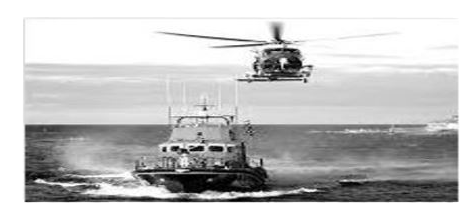
Based on the above answer the following:
If the coast guard decides to shoot the boat at that given instant of time, when the speed of bullet is 36m/sec, then what is the time taken for the bullet to travel and hit the boat? View SolutionQuestion 111
The Indian coast guard, while patrolling, saw a suspicious boat with people. They were nowhere looking like fishermen. The coast guard were closely observing the movement of the boat for an opportunity to seize the boat. They observed that the boat is moving along a planar surface. At an instant of time, the coordinates of the position of the coast guard helicopter and the boat is (1, 3, 5) and (2, 5, 3) respectively.
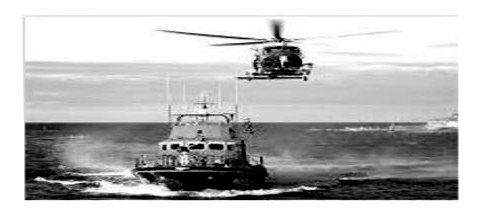
Based on the above answer the following:
At that given instant of time, the equation of line passing through the positions of the helicopter and boat is View SolutionQuestion 112
The Indian coast guard, while patrolling, saw a suspicious boat with people. They were nowhere looking like fishermen. The coast guard were closely observing the movement of the boat for an opportunity to seize the boat. They observed that the boat is moving along a planar surface. At an instant of time, the coordinates of the position of the coast guard helicopter and the boat is (1, 3, 5) and (2, 5, 3) respectively.
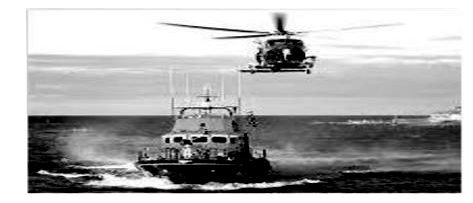
Based on the above answer the following:
At a different instant of time, the boat moves to a different position along the planar surface. What should be the coordinates of the location of the boat if the coast guard shoots the bullet along the line whose equation is x1=y−12=z−21 for the bullet to hit the boat?View SolutionQuestion 116
The equation of motion of a missile are x = 3t, y = -4t, z = t, where the time ‘t’ is given in seconds, and the distance is measured in kilometres.
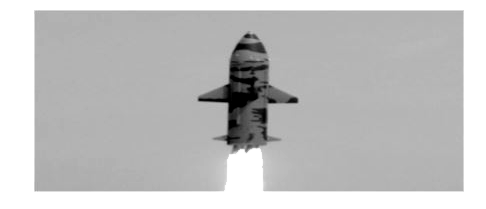
Based on the above answer the following:
If the position of rocket at a certain instant of time is (5, -8, 10), then what will be the height of the rocket from the ground? (The ground is considered as the xy – plane). View SolutionQuestion 117
The equation of motion of a missile are x = 3t, y = -4t, z = t, where the time ‘t’ is given in seconds, and the distance is measured in kilometres.
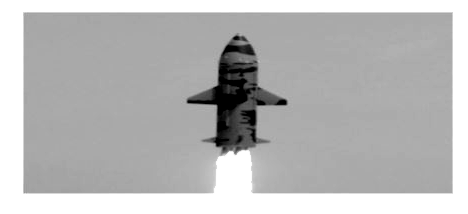
Based on the above answer the following:
At a certain instant of time, if the missile is above the sea level, where the equation of the surface of sea is given by 2x + y + 3z = 1 and the position of the missile at that instant of time is (1, 1, 2), then the image of the position of the rocket in the sea isView SolutionQuestion 118
Suppose the floor of a hotel is made up of mirror polished Salvatore stone. There is a large crystal chandelier attached to the ceiling of the hotel room. Consider the floor of the hotel room as a plane having the equation x – y + z = 4 and the crystal chandelier is suspended at the point (1, 0, 1).
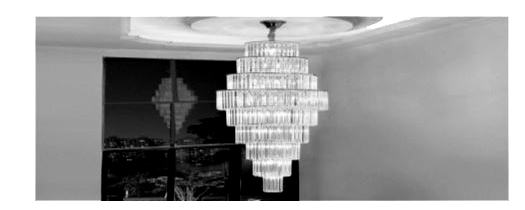
Based on the above answer the following:
Find the direction ratios of the perpendicular from the point (1, 0, 1) to the plane x – y + z = 4. View SolutionQuestion 119
Suppose the floor of a hotel is made up of mirror polished Salvatore stone. There is a large crystal chandelier attached to the ceiling of the hotel room. Consider the floor of the hotel room as a plane having the equation x – y + z = 4 and the crystal chandelier is suspended at the point (1, 0, 1).
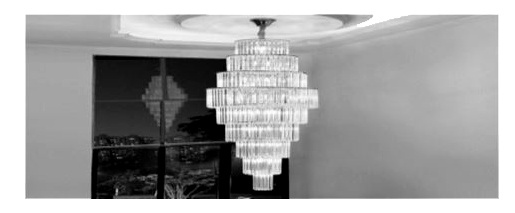
Based on the above answer the following:
Find the length of the perpendicular from the point (1, 0, 1) to the plane x – y + z = 4.View SolutionQuestion 120
Suppose the floor of a hotel is made up of mirror polished Salvatore stone. There is a large crystal chandelier attached to the ceiling of the hotel room. Consider the floor of the hotel room as a plane having the equation x – y + z = 4 and the crystal chandelier is suspended at the point (1, 0, 1).
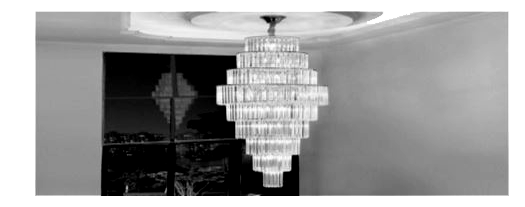
Based on the above answer the following:
The equation of the perpendicular from the point (1, 0, 1) to the plane x – y + z = 4 isView SolutionQuestion 121
Suppose the floor of a hotel is made up of mirror polished Salvatore stone. There is a large crystal chandelier attached to the ceiling of the hotel room. Consider the floor of the hotel room as a plane having the equation x – y + z = 4 and the crystal chandelier is suspended at the point (1, 0, 1).
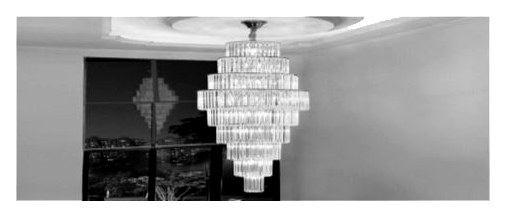
Based on the above answer the following:
The equation of the plane parallel to the plane x – y + z = 4, which is at a unit distance from the point (1, 0, 1) is View SolutionQuestion 122
Suppose the floor of a hotel is made up of mirror polished Salvatore stone. There is a large crystal chandelier attached to the ceiling of the hotel room. Consider the floor of the hotel room as a plane having the equation x – y + z = 4 and the crystal chandelier is suspended at the point (1, 0, 1).
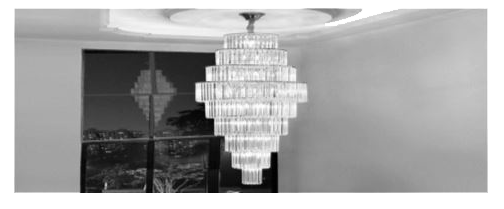
Based on the above answer the following:
The direction cosine of the normal to the plane x – y + z = 4 is View SolutionQuestion 123
A mobile tower stands at the top of a hill. Consider the surface on which the tower stands as a plane having points A(1,0,2), B(3,−1,1) and C(1,2,1) on it. The mobile tower is tied with 3 cables from the point A, B and C such that it stands vertically on the ground. The top of the tower is at the point (2,3,1) as shown in the figure.
Based on the above answer the following:
The equation of the plane passing through the points A, B and C is View SolutionQuestion 124
A mobile tower stands at the top of a hill. Consider the surface on which the tower stands as a plane having points A(1,0,2), B(3,−1,1) and C(1,2,1) on it. The mobile tower is tied with 3 cables from the point A, B and C such that it stands vertically on the ground. The top of the tower is at the point (2,3,1) as shown in the figure.
Based on the above answer the following:
The height of the tower from the ground is View SolutionQuestion 125
A mobile tower stands at the top of a hill. Consider the surface on which the tower stands as a plane having points A(1, 0, 2), B(3, -1, 1) and C(1, 2, 1) on it. The mobile tower is tied with 3 cables from the point A, B and C such that it stands vertically on the ground. The top of the tower is at the point (2, 3, 1) as shown in the figure.
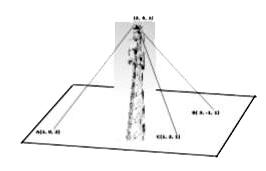
Based on the above answer the following:
The equation of the perpendicular line drawn from the top of the tower to the ground isView SolutionQuestion 126
A mobile tower stands at the top of a hill. Consider the surface on which the tower stands as a plane having points A(1, 0, 2), B(3, -1, 1) and C(1, 2, 1) on it. The mobile tower is tied with 3 cables from the point A, B and C such that it stands vertically on the ground. The top of the tower is at the point (2, 3, 1) as shown in the figure.
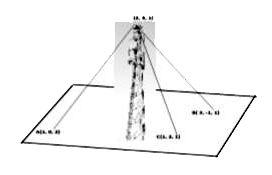
Based on the above answer the following:
The coordinates of the foot of the perpendicular drawn from the top of the tower to the ground are View SolutionQuestion 127
A mobile tower stands at the top of a hill. Consider the surface on which the tower stands as a plane having points A(1, 0, 2), B(3, -1, 1) and C(1, 2, 1) on it. The mobile tower is tied with 3 cables from the point A, B and C such that it stands vertically on the ground. The top of the tower is at the point (2, 3, 1) as shown in the figure.
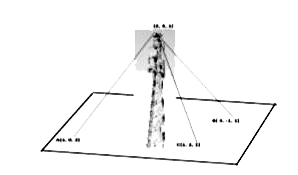
Based on the above answer the following:
The area of ∆ ABC is View SolutionQuestion 128
A coach is training 3 players. He observes that the player A can hit a target 4 times in 5 shots, player B can hit 3 times in 4 shots and the player C can hit 2 times in 3 shots
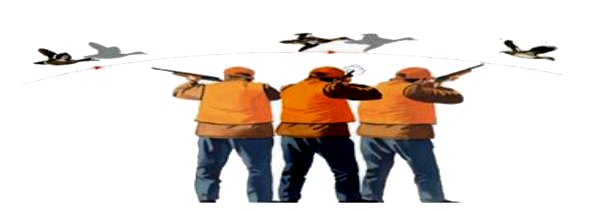
From this situation answer the following:
Let the target is hit by A, B: the target is hit by B and, C: the target is hit by A and C. Then, the probability that A, B and, C all will hit, is View SolutionQuestion 129
A coach is training 3 players. He observes that the player A can hit a target 4 times in 5 shots, player B can hit 3 times in 4 shots and the player C can hit 2 times in 3 shots
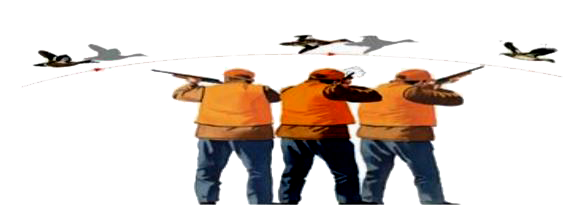
From this situation answer the following:
what is the probability that B, C will hit and A will lose? View SolutionQuestion 130
A coach is training 3 players. He observes that the player A can hit a target 4 times in 5 shots, player B can hit 3 times in 4 shots and the player C can hit 2 times in 3 shots
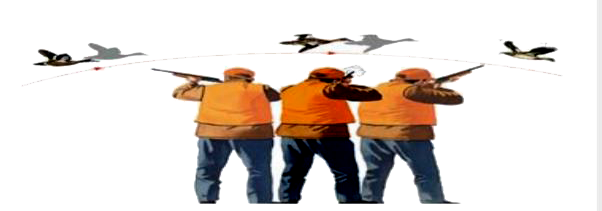
From this situation answer the following:
what is the probability that ‘any two of A, B and C will hit?View SolutionQuestion 131
A coach is training 3 players. He observes that the player A can hit a target 4 times in 5 shots, player B can hit 3 times in 4 shots and the player C can hit 2 times in 3 shots
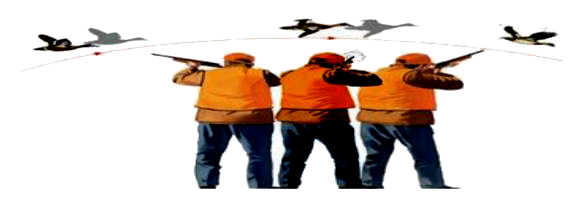
From this situation answer the following:
What is the probability that ‘none of them will hit the target’? View SolutionQuestion 132
A coach is training 3 players. He observes that the player A can hit a target 4 times in 5 shots, player B can hit 3 times in 4 shots and the player C can hit 2 times in 3 shots
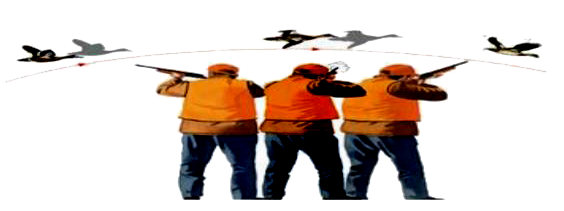
From this situation answer the following:
What is the probability that at least one of A, B or C will hit the target? View SolutionQuestion 133
The reliability of a COVID PCR test is specified as follows
Of people having COVID, 90% of the test detects the disease but 10% goes undetected. Of people free of COVID, 99% of the test is judged COVID negative but 1% are diagnosed as showing COVID positive. From a large population of which only 0.1% have COVID, one person is selected at random, given the COVID PCR test, and the pathologist reports him/her as COVID positive.
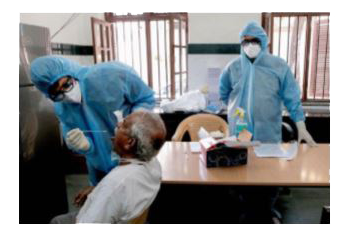
Based on the above information, answer the following
What is the probability of the ‘person to be tested as COVID positive’ given that ‘he is actually having COVID? View SolutionQuestion 134
The reliability of a COVID PCR test is specified as follows
Of people having COVID, 90% of the test detects the disease but 10% goes undetected. Of people free of COVID, 99% of the test is judged COVID negative but 1% are diagnosed as showing COVID positive. From a large population of which only 0.1% have COVID, one person is selected at random, given the COVID PCR test, and the pathologist reports him/her as COVID positive.
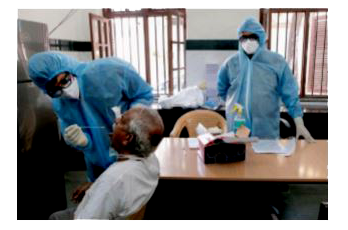
Based on the above information, answer the following
What is the probability of the ‘person to be tested as COVID positive’ given that ‘he is actually not having COVID’? View SolutionQuestion 135
The reliability of a COVID PCR test is specified as follows
Of people having COVID, 90% of the test detects the disease but 10% goes undetected. Of people free of COVID, 99% of the test is judged COVID negative but 1% are diagnosed as showing COVID positive. From a large population of which only 0.1% have COVID, one person is selected at random, given the COVID PCR test, and the pathologist reports him/her as COVID positive.
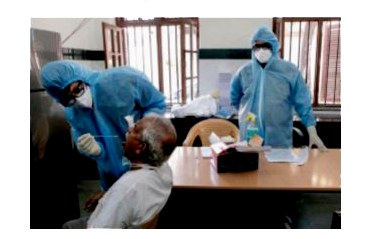
Based on the above information, answer the following
What is the probability that the ‘person is actually not having COVID? View SolutionQuestion 136
The reliability of a COVID PCR test is specified as follows
Of people having COVID, 90% of the test detects the disease but 10% goes undetected. Of people free of COVID, 99% of the test is judged COVID negative but 1% are diagnosed as showing COVID positive. From a large population of which only 0.1% have COVID, one person is selected at random, given the COVID PCR test, and the pathologist reports him/her as COVID positive.
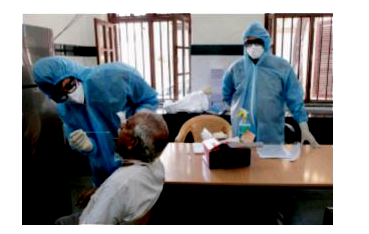
Based on the above information, answer the following
What is the probability that the ‘person is actually having COVID given that ‘he is tested as COVID positive’? View SolutionQuestion 137
The reliability of a COVID PCR test is specified as follows
Of people having COVID, 90% of the test detects the disease but 10% goes undetected. Of people free of COVID, 99% of the test is judged COVID negative but 1% are diagnosed as showing COVID positive. From a large population of which only 0.1% have COVID, one person is selected at random, given the COVID PCR test, and the pathologist reports him/her as COVID positive.
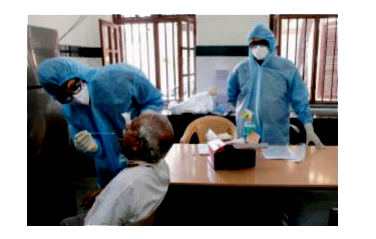
Based on the above information, answer the following
What is the probability that the ‘person selected will be diagnosed as COVID positive’?View SolutionQuestion 138
In answering a question on a multiple choice test for class XII, a student either knows the answer or guesses. Let 3/5 be the probability that he knows the answer and 2/5 be the probability that he guesses. Assume that a student who guesses at the answer will be correct with probability 1/3. Let E1,E2, E be the events that the student knows the answer, guesses the answer and answers correctly respectively.
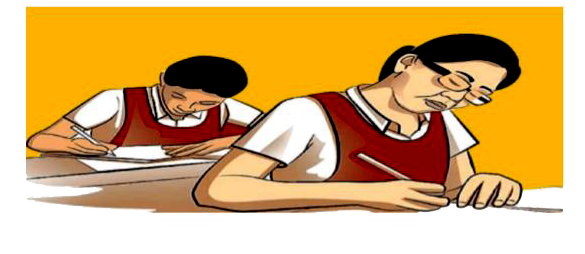
Based on the above information, answer the following
What is the value of P(E1)? View SolutionQuestion 139
In answering a question on a multiple choice test for class XII, a student either knows the answer or guesses. Let 3/5 be the probability that he knows the answer and 2/5 be the probability that he guesses. Assume that a student who guesses at the answer will be correct with probability 1/3. Let E1,E2, E be the events that the student knows the answer, guesses the answer and answers correctly respectively.
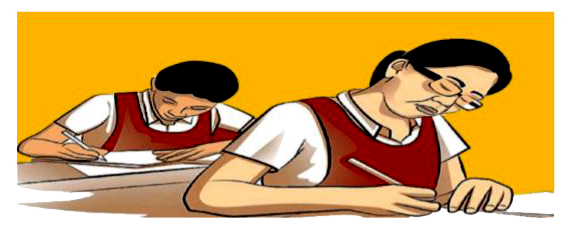
Based on the above information, answer the following
Value of P(E∣E1) is View SolutionQuestion 140
In answering a question on a multiple choice test for class XII, a student either knows the answer or guesses. Let 3/5 be the probability that he knows the answer and 2/5 be the probability that he guesses. Assume that a student who guesses at the answer will be correct with probability 1/3. Let E1,E2, E be the events that the student knows the answer, guesses the answer and answers correctly respectively.
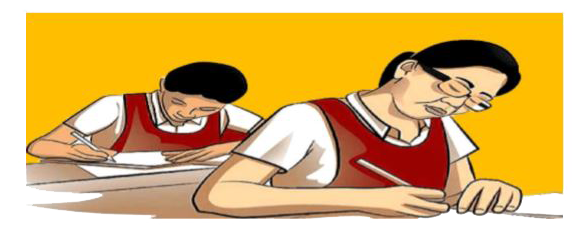
Based on the above information, answer the following
k=2∑k=1P(E∣Ek)P(Ek) EqualsView SolutionQuestion 141
In answering a question on a multiple choice test for class XII, a student either knows the answer or guesses. Let 3/5 be the probability that he knows the answer and 2/5 be the probability that he guesses. Assume that a student who guesses at the answer will be correct with probability 1/3. Let E1,E2, E be the events that the student knows the answer, guesses the answer and answers correctly respectively.
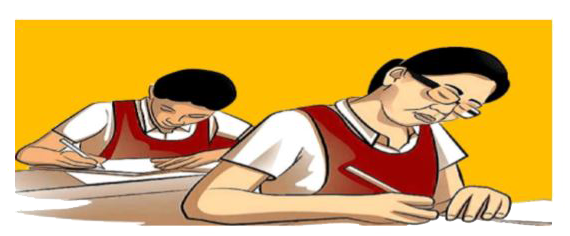
Based on the above information, answer the following
Value of k=2∑k=1p(Ek)View SolutionQuestion 142
In answering a question on a multiple choice test for class XII, a student either knows the answer or guesses. Let 3/5 be the probability that he knows the answer and 2/5 be the probability that he guesses. Assume that a student who guesses at the answer will be correct with probability 1/3. Let E1,E2, E be the events that the student knows the answer, guesses the answer and answers correctly respectively.
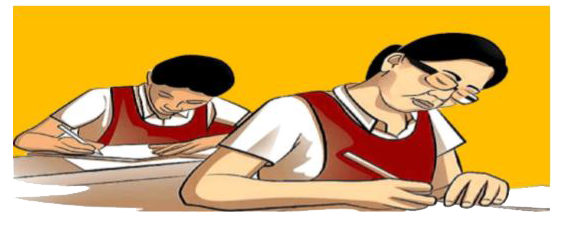
Based on the above information, answer the following
What is the probability that the student knows the answer given that he answered it correctly? View Solution
